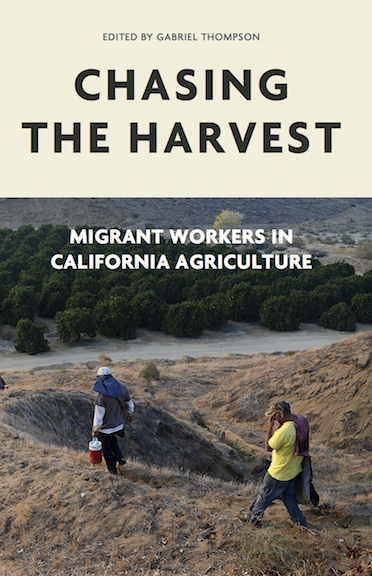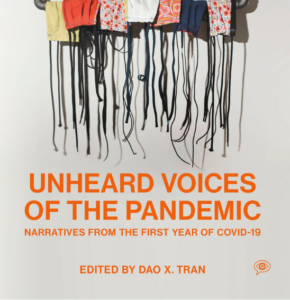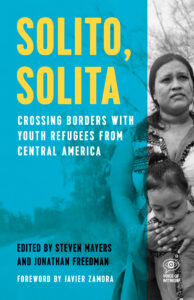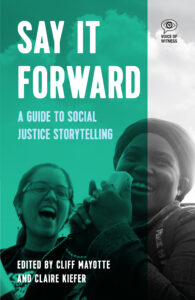About the Book
The Grapes of Wrath brought national attention to the lives of California’s migrant farmworkers in the 1930s. César Chávez and the United Farm Workers’ grape and lettuce boycotts captured the imagination of the United States in the 1960s and 70s. Yet today, the stories of the more than 800,000 men, women, and children working in California’s fields—one third of the nation’s agricultural workforce—are rarely heard, despite the persistence of wage theft, dangerous working conditions, and uncertain futures. This book of oral histories makes more visible these farmworkers’ stories of hardship, but also of bravery, solidarity, and creativity in making a life in California’s fields, and earning greater opportunity for future generations.

Narrators Include:

MARICRUZ, a single mother fired from a packing plant after filing a sexual assault complaint against her supervisor.

ROBERTO, a vineyard laborer in the scorching Coachella Valley who became an advocate for more humane working conditions after his teenage son almost died of heatstroke.

OSCAR, an elementary school teacher in Salinas who wants to free his students from a life in the fields, the fate that once awaited him as a child.
About the Editor:
Gabriel Thompson is an independent journalist who has written for the The New York Times, Harper’s, New York, Slate, Mother Jones, Virginia Quarterly Review, and The Nation. His articles about labor and immigration have won a number of prizes, including the Studs Terkel Media Award and the Sidney Award. His most recent book is America’s Social Arsonist: Fred Ross and Grassroots Organizing in the Twentieth Century.
Related Resources

View the Lesson Plans
The lessons use oral history to promote a nuanced understanding of the lives and struggles of California’s migrant farmworkers.
Book Club Discussion Questions
Use these questions to encourage meaningful discussions about the book.
Preview a Story
In Civil Eats, read an oral history from a farmworker family.
Narrative Excerpt
In Longreads, read an excerpt from Maricruz Ladino’s oral history.Praise for Chasing the Harvest:
Chasing the Harvest is a deeply moving tribute to the lives of California farm workers, and their journey from Mexican villages into the cruel machinery of American agribusiness. Herein lie tales of poverty and reinvention, of exploitation and personal triumph. Thompson has given us a deeply empathic work of journalism and listening in the tradition of Studs Terkel and Alessandro Portelli.
Héctor Tobar, NYT bestselling author of Deep Down Dark
Chasing the Harvest not only gives voice to farmworkers who are all too often invisible, it does something more. Cumulatively, these portraits form a nuanced mosaic of life in the fields—the good, the bad, the mundane, the tragic and the heroic. Today they may be a teacher, community organizer, or grape grower, but each was shaped by the experience of working long hours in the California fields, and their stories help us understand what that means and why it matters.
Miriam Pawel, author of The Crusades of Cesar Chavez: A Biography
The voices are defiant and nuanced, aware of the human complexities that spill across bureaucratic categories and arbitrary borders.
Siddhartha Deb for The Baffler
Media Coverage
This project was made possible thanks to the Burnett Family Fund.
















